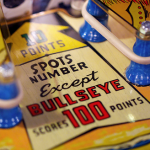Community Embraces New Word Game at Mid-Year Play Day This past Sunday, families at Takoma Park’s Seventh Annual Mid-Year Play Day had the opportunity to experience OtherWordly for the first time. Our educational language game drew curious children and parents to our table throughout the afternoon. Words in Space Several children gathered around our iPads […]
Read moreTag: games
 In the era of tablets and smart phones, parents of small children may consider educational apps. Recently, the “Slashdot” online community discussed apps and kids. Nerdy parents chimed in with suggestions. This tech-savvy community is often reluctant to rely on apps, favoring “play time outside with soccer and baseballs, and inside with blocks, Hot Wheels, PlayDoh, etc.” But many parents found value in apps, at least occasionally.
In the era of tablets and smart phones, parents of small children may consider educational apps. Recently, the “Slashdot” online community discussed apps and kids. Nerdy parents chimed in with suggestions. This tech-savvy community is often reluctant to rely on apps, favoring “play time outside with soccer and baseballs, and inside with blocks, Hot Wheels, PlayDoh, etc.” But many parents found value in apps, at least occasionally.
Here’s a list of ten apps that computer nerds turn to when they want to engage their young kids in math and science… (more…)
 Games and gaming principles have a useful role in exhibit design for both real world and virtual settings. “As educators, we’re always looking for ways to make museum content ‘stickier’ and more meaningful,” says Michelle Moon in a recent blog post, “All fun and games.” Moon designs and runs public programs for adults at the Peabody Essex Museum.
Games and gaming principles have a useful role in exhibit design for both real world and virtual settings. “As educators, we’re always looking for ways to make museum content ‘stickier’ and more meaningful,” says Michelle Moon in a recent blog post, “All fun and games.” Moon designs and runs public programs for adults at the Peabody Essex Museum.
To get thinking about it, here are some simple game structures that work well for museum learning: (more…)

Gameplay has a lot to teach us about motivating participation through joy. ‘Gamification’ is a new term, coined in 2008, for adapting game mechanics into non-game setting — such as building online communities, education and outreach, marketing, or building educational apps. Here are some ideas for how to do it.
 Achievements
Achievements
Badges, trophies and points represent having accomplished something. Since antiquity, people have been honored with medals, crowns and other decorations. Wreaths made of bay laurel were awarded to Greek athletes, and worn by Roman poets (e.g., Ovid, at left). (more…)
 The National STEM Video Game Challenge, awarded the $50k grand prize last week to a professional team that did not meet the eligibility criteria.
The National STEM Video Game Challenge, awarded the $50k grand prize last week to a professional team that did not meet the eligibility criteria.
This story came to my attention last week, when I wrote a blog post about a cool online science game for Middle School kids which won the grand prize as part of the contest run by the Joan Ganz Cooney Center at Sesame Workshop (the parent organization of Sesame Street) and E-Line Media. That article briefly mentioned anomalies in the contest, and the Cooney Center sent me an email: “Please take this article down as soon as possible because of a legal issue that is pending.” This made me wonder, is there a scandal on Sesame Street?
 “This is your target” the game says, pointing at an ordinary looking cartoon woman in a T-shirt and track pants. “If you pay close attention to the host’s weaknesses, you can make a disease that will get the host super duper sick!” (more…)
“This is your target” the game says, pointing at an ordinary looking cartoon woman in a T-shirt and track pants. “If you pay close attention to the host’s weaknesses, you can make a disease that will get the host super duper sick!” (more…)
 Games on mobile devices are a new way to engage museum visitors. Two companies gave presentations at yesterday’s Museums & Mobile 2011 online conference.
Games on mobile devices are a new way to engage museum visitors. Two companies gave presentations at yesterday’s Museums & Mobile 2011 online conference.
One popular type of game is a miniature scavenger hunt, called “location-gaming.” The premise is that players go places (e.g., a restaurant or park), do fast, simple tasks (like typing something into their phone, or uploading a photo of something), and win a reward (the reward can virtual “points,” or something tangible, like a free postcard or sandwich). Other types of games are more thematic, such as creating playing-card “battles” between characters that appear in art. (more…)

